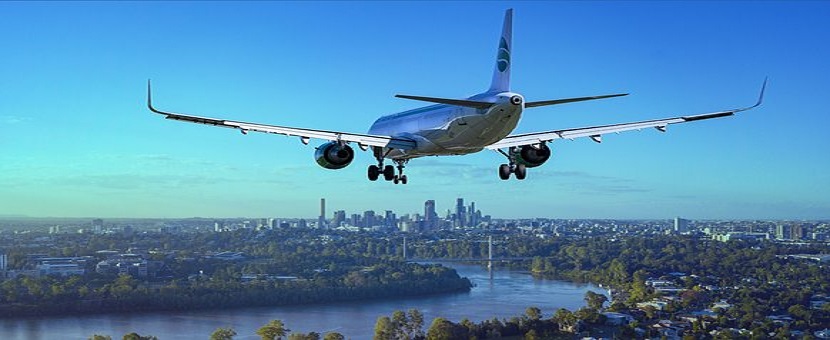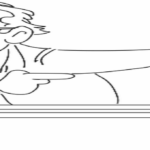Mekwunye v. Emirates Airlines [2019] 9 NWLR (Pt. 1677) 191; (2019) LPELR-46553(SC)
The Story
Miss Promise Mekwunye (“the Appellant”) bought Emirates Airlines’ (“the Respondent”) flight ticket to enable her travel from Texas, USA to Lagos, Nigeria and back. Between the date the ticket was purchased and the scheduled flight date, the Respondent confirmed to the Appellant the ticket and the flight schedule three times. However, on the flight date and notwithstanding the strong confirmations, the Appellant was denied boarding involuntarily and for no reason at all, except only (as she was later told) that the ticket had been cancelled. She was embarrassed and stressfully inconvenienced for two days by the Respondent’s reckless breach of contract. The Respondent provided neither alternative arrangement nor accommodation and feeding, leaving the Appellant stranded. No apologies were rendered. The Appellant was put to extra expenditure of having to buy another ticket (from American Airlines) more expensive and for longer route. Aggrieved, the Appellant sued the Respondent at the Federal High Court, Lagos.
At the conclusion of hearing, the trial Court awarded general damages in the sum of N2.5 Million to the Appellant for all the stress, inconvenience and embarrassment caused her by the Respondent. The Court also ordered refund of the tickets. The Respondent appealed to the Court of Appeal which denied the Appellant the general damages awarded holding that ordering the Respondent to pay general damages in addition to the tickets refund amounted to double compensation for the breach of contract by the Respondent. The Appellant appealed to the Supreme Court.
Resolving the issues
On double compensation
The Supreme Court was called upon to determine whether the award of N2.5 Million as general damages in addition to the refund of airline tickets the Appellant bought from the Respondent and American Airline amounts to double compensation. Eko, JSC at 216, pars. D-E, answered:
“Accordingly, I am of the firm view that the Respondent’s flagrant breach of contract whereby it unreasonably denied boarding to a confirmed passenger for no good cause, previous notice and without explanation whereby the passenger, as the Appellant herein, was not only put to extra expenditure of having to buy a more expensive ticket for a longer route, but also to endure the embarrassment, stress and inconvenience for two days of being stranded clearly entitles the passenger to both general damages and the ticket refund.”
Under Article 29 of the Montreal Convention, 1999 (which was domesticated in Nigeria pursuant to Section 48 of the Civil Aviation Act, 2006), punitive, exemplary or other non-compensatory damages shall not be recoverable from an airline. The Court considered whether the award of N2.5 Million general damages qualifies and/or amounts to non-compensatory damages contrary to the provisions of the Montreal Convention and the terms of contract between the parties.
Mary Peter-Odili, JSC, at page 224 of the report explained thus:
“The word non-compensatory damages as stated in the said Article 29 of the Montreal Convention can only be construed in the likes of punitive, aggravated and/or exemplary damages and not general damages or cost of an action awarded to a successful party… Indeed, Compensatory Damages is the same as General Damages which is damages recovered in payment for actual injury or economic loss, which does not include punitive damages. A sum of money awarded in a civil action by a Court to indemnify a person for the particular loss, detriment, or injury suffered as a result of the unlawful conduct of another. Compensatory damages provide a plaintiff with the monetary amount necessary to replace what was lost, and nothing more.”
Reliance on exclusion/limiting clauses
The Supreme Court further made a strong statement regarding reliance on clauses seeking to limit and/or exclude the liability of airlines for fundamental breach of contract. At pp. 217-218 of the report, Eko, JSC stated:
“From the peculiar facts of this case, the Article 9.3.1 of Emirates Conditions of Carriage, 2006, cannot and does not avail the Respondent for denying boarding to the Appellant for no just cause and no explanation whatsoever. In spite of the fact that the Respondent for three times had confirmed the Appellant’s reservation she was denied boarding on the confirmed flight date. No other flight arrangement or carriage was offered to her. The Respondent’s conduct tantamounts to complete repudiation of the contract it had with the Appellant. I agree with the Appellant that the Respondent’s repudiation of its contract with the Appellant by the breach of the fundamental term of the contract does not entitle it to plead the Montreal Convention (particularly Articles 17 – 22 thereof). On whether Articles 17 – 22 of the Montreal Convention avail an airline in breach of its fundamental term of contract with the passenger, this Court re-stated the principle clearly in CameroonAirlinesv. Otutuizu (supra) thus – The Articles have nothing to do with the liability of an airline in the event of breach of a contract to transport its customer to a given location. The legislations relied upon by the Appellant have neither provided defence nor set limit to the amount of damages recoverable in the event of the Plaintiff’s success in establishing that the Defendant had failed to transport him by air to an agreed destination. (Italics supplied). It is settled from a number of decisions that a party in breach of a fundamental term of his contract with a third party will not be allowed to benefit from or resort to exclusion clauses: Pinnock Brothers v.Lewis& Peat Ltd (1956) 2 ALL E.R. 866; Adel Boshalli v. Allied Commercial Exporters Ltd (1961) ALL NLR 917 at 922; Owners of MV Gongola Hope v. S.C. (Nig). Ltd. The rationale for the principle is that a party who is guilty of breach of a fundamental term of contract could/should not benefit from his own wrong doing by resorting to exclusionary clauses in order to limit his liability. This is more so, when a contract of carriage by air is brazenly breached and no explanation is offered, as in the instant case. In which case there is a total failure of consideration and the central purpose or essence of the contract has wholly disappeared.”
The legal status of travel agents in the circumstance
According to the facts, the Appellant purchased the Respondent’s ticket through one Mr. Clement Dolor who, at the material time of purchase, was an officer/employee of the Respondent at the Respondent’s office in Lagos. However, Mr. Dolor left the employment of the Respondent and established his own personal travel agency, Simba Travel & Tours. Available evidence showed that the Appellant was aware of this development and also instructed him to apply for the refund of the Respondent’s ticket and the American Airlines ticket. The Respondent only refunded to the Appellant the sum of $1,774 USD through Mr. Dolor (being aware Mr. Dolor operated Simba Travel & Tours) but withheld the American Airlines ticket and made no refund for it. The Appellant rejected the $1,774 USD and the Respondent also refused to collect the money from Mr. Dolor. The issue arose as to whether Mr. Dolor was the agent of the Appellant for the purpose of the return of both tickets.
The Supreme Court, per Eko, JSC, held in the affirmative and concluded that the Court of Appeal was right when it held that the Respondent was liable to repay the Appellant the sum of $3,200 USD less the amount paid to Mr. Dolor (which sum Mr. Dolor admitted during the trial was still in his possession).
Conclusion
Decisions like this are highly welcome. Airlines must be on their toes in ensuring they do not leave passengers stranded recklessly. This will go a long way in preventing airlines from frequent taking of cover under exclusion/limiting clauses to escape liability for their breach of contracts.














